When seeking approval from an Institutional Review Board (IRB), it's crucial to present your case clearly and professionally. This letter template will guide you in outlining your research objectives, methodologies, and ethical considerations that ensure the protection of human subjects. By using this structured format, you can effectively communicate the importance of your study and its potential benefits. Ready to dive deeper into the details and enhance your submission? Let's explore the essential components of a compelling IRB approval letter!

Clear research objectives and purpose
The purpose of seeking institutional review board (IRB) approval is to ensure ethical standards in research involving human subjects. Clear research objectives include investigating the impact of a newly developed treatment on patients suffering from chronic pain. This study aims to analyze various outcomes such as pain reduction (measured by the numerical pain rating scale) and overall quality of life improvement (assessed through validated questionnaires). Participants will be recruited from local clinics in Seattle, Washington, with an anticipated sample size of 200 individuals. The study will adhere to rigorous protocols, ensuring informed consent, confidentiality, and adherence to the principles outlined in the Belmont Report (respect for persons, beneficence, and justice). Expected timelines for recruitment and data analysis have been established to facilitate efficient oversight.
Detailed methodology and participant guidelines
Research methodology plays a crucial role in ensuring the integrity and validity of a study. Clearly defined participant guidelines facilitate ethical considerations in human subject research. For instance, using randomized controlled trials (RCTs) ensures each participant (for example, 200 individuals aged 18-65) has an equal chance of being assigned to either the experimental group or the control group. Informed consent forms must outline potential risks (such as discomfort or adverse reactions) and the purpose of the study, which could be exploring the efficacy of a new medication. Recruitment processes might include advertisements in local community centers or online platforms, targeting diverse participants to ensure representativeness regarding race, gender, and socioeconomic status. Procedures for data collection should ensure confidentiality, employing numbers rather than names for participant identification. Additionally, debriefing sessions post-study provide participants an opportunity to discuss experiences and ask questions, reinforcing their ethical treatment throughout the research process.
Informed consent processes and documentation
Informed consent processes are critical to ethical research practices, particularly within institutional review board (IRB) frameworks. Effective informed consent (the participant's agreement to partake in a study, based on full understanding of its implications) requires clear, thorough documentation that outlines the study's purpose, risks, benefits, and the voluntary nature of participation. Essential components include the use of layman's terms (to ensure comprehension), alongside specific information regarding participant rights (such as the right to withdraw without penalty at any time). Community engagement initiatives within local contexts (such as hospitals, universities, or public forums) can enhance participant trust, explaining procedures in ways relatable to the population involved. Researchers should ensure that consent forms are culturally sensitive and available in preferred languages to accommodate diverse participant backgrounds, thereby promoting inclusivity and respect for autonomy in the research process.
Risk assessment and management strategies
Institutional Review Boards (IRBs) play a crucial role in the ethical oversight of research studies involving human subjects. Risk assessment involves identifying potential hazards related to participant safety, which can include psychological distress from sensitive topics, physical harm from medical procedures, or privacy breaches concerning data management. Management strategies may include implementing comprehensive informed consent processes that educate participants on risks, maintaining confidentiality through secure data storage methods, and establishing protocols for adverse event reporting. Regular monitoring of the research process ensures adherence to ethical standards, allowing for timely adjustments to minimize risks. Additionally, training research staff on ethical conduct and risk mitigation is critical for maintaining participant trust and safety within various research settings.
Compliance with ethical standards and regulations
Institutional Review Board (IRB) approval ensures compliance with ethical standards and regulations governing research involving human participants. This process is paramount for institutions such as universities, hospitals, and research organizations. Compliance includes adherence to guidelines outlined by bodies like the U.S. Department of Health and Human Services (HHS) and the Office for Human Research Protections (OHRP). Key components assessed by the IRB include informed consent procedures, risk-benefit analysis, and confidentiality measures. In 1974, the National Research Act established the requirement for IRB review, leading to the Institutional Review Boards' pivotal role in protecting the rights and welfare of participants in studies, ensuring ethical integrity throughout research endeavors.
Letter Template For Institutional Review Board Approval Samples
Letter template of request for institutional review board approval for research study.
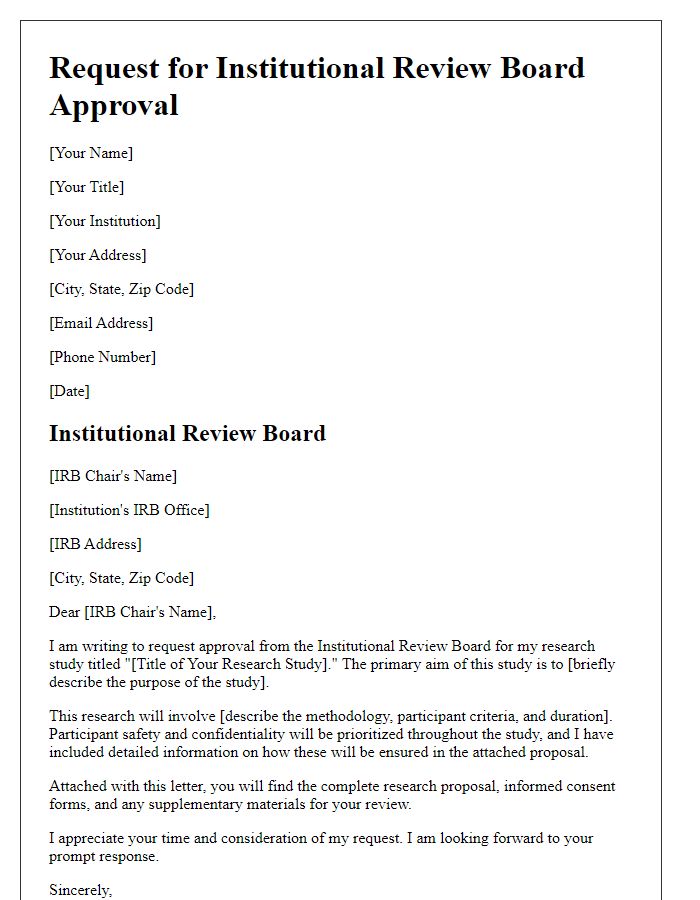
Letter template of notification for institutional review board approval submission.
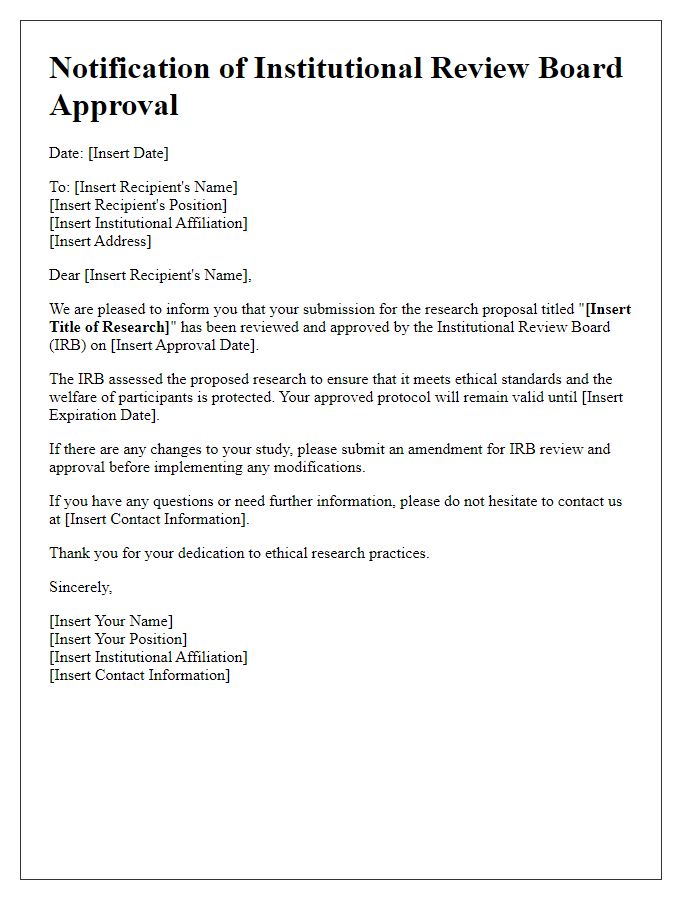
Letter template of follow-up for institutional review board approval status.
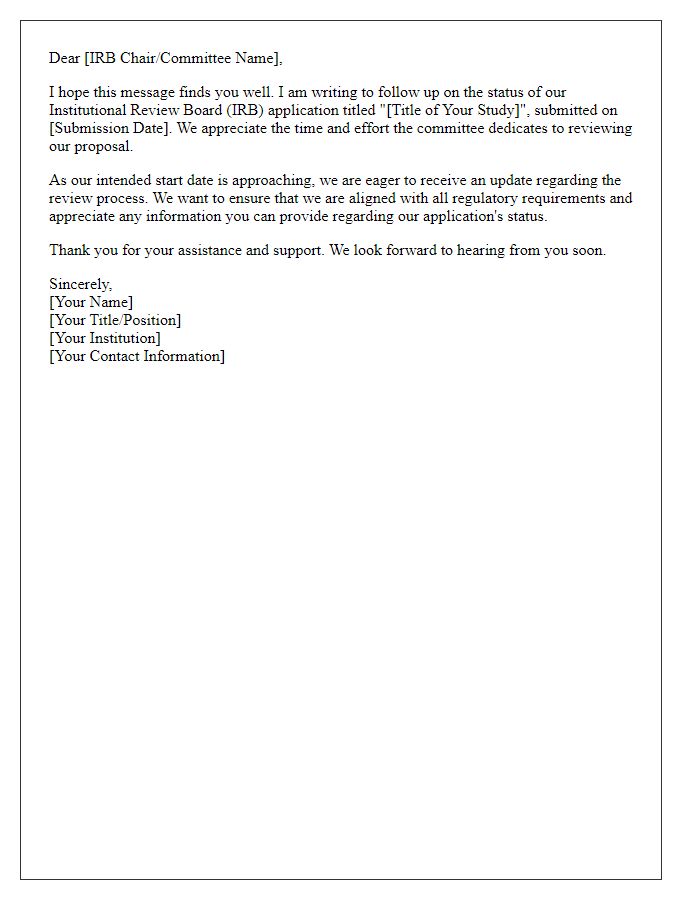
Letter template of amendment request to institutional review board approval.
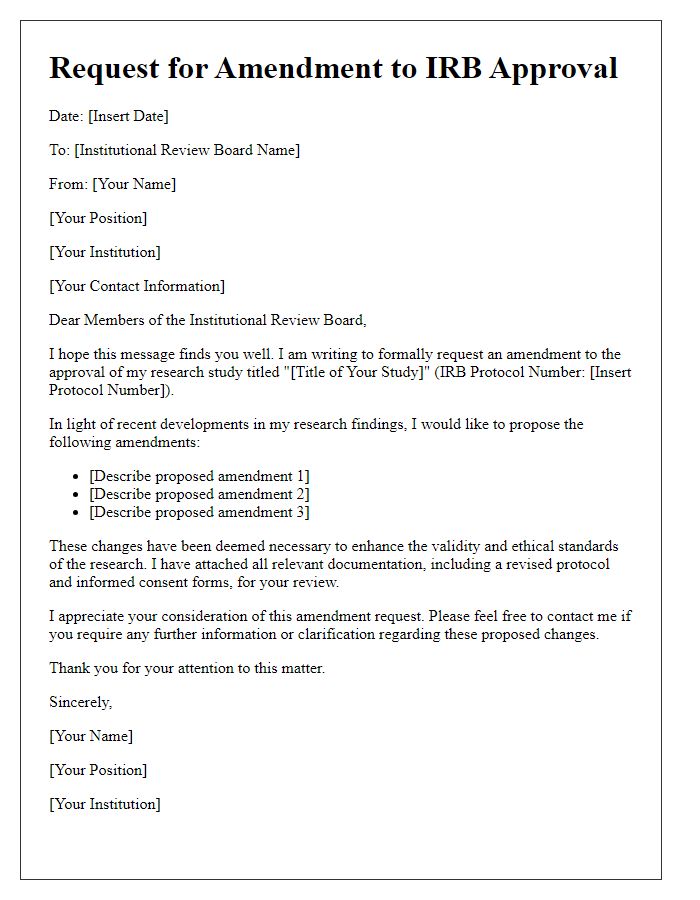
Letter template of appeal for denied institutional review board approval.
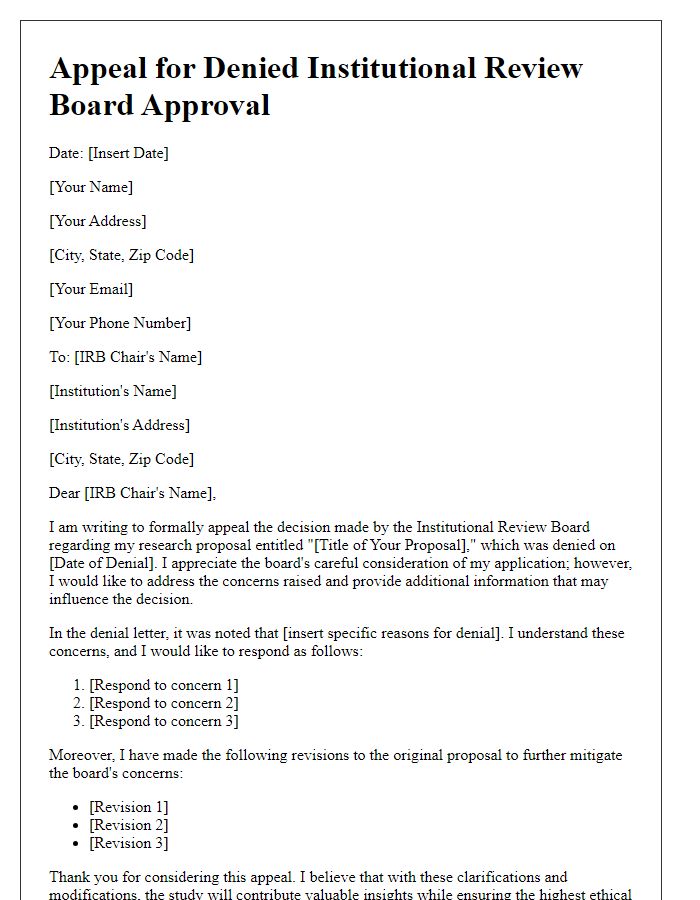
Letter template of confirmation for institutional review board approval received.
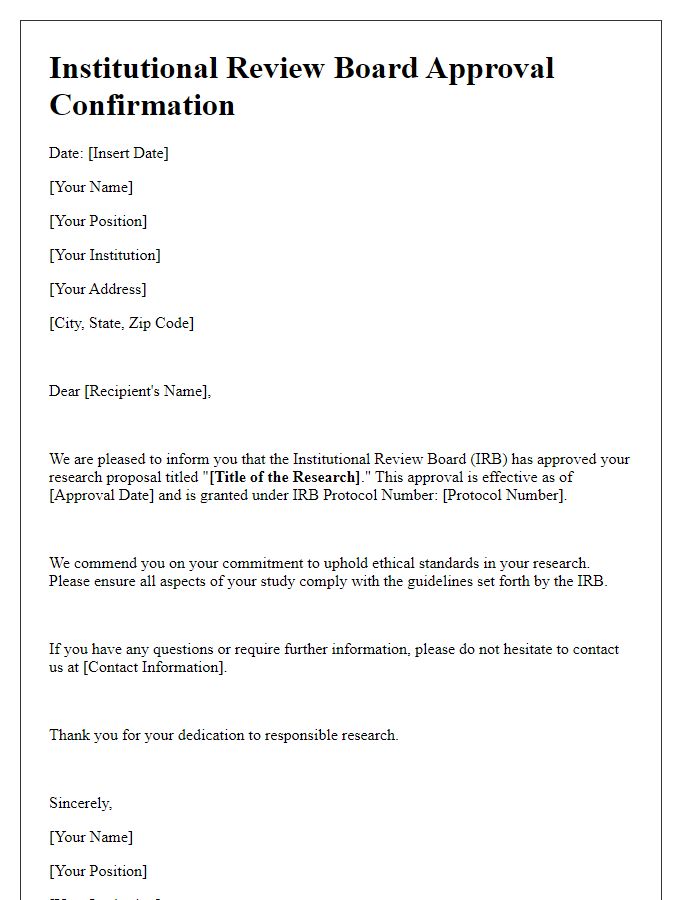
Letter template of inquiry regarding institutional review board approval process.
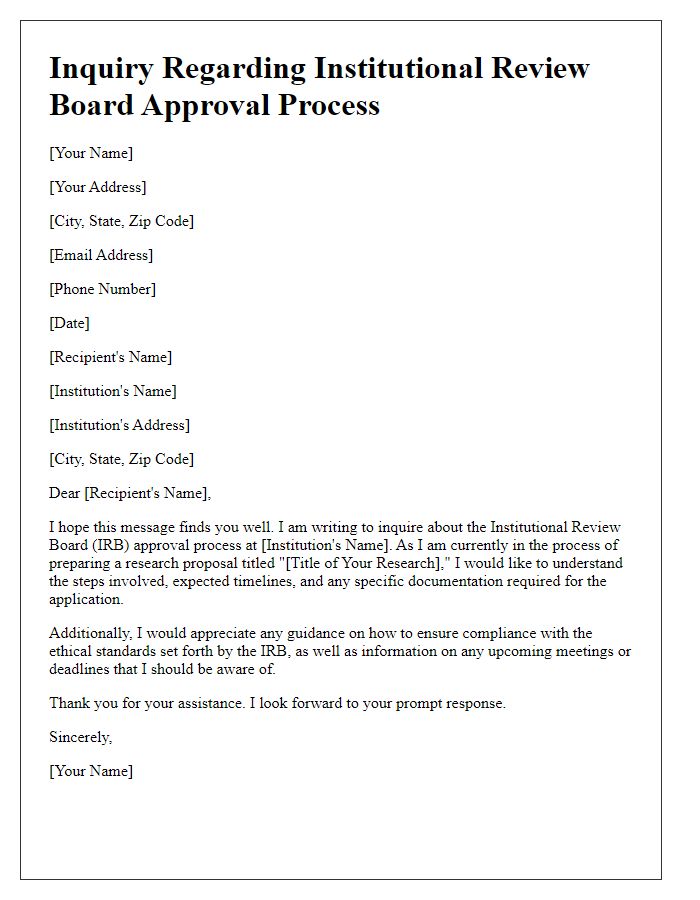
Letter template of gratitude for institutional review board approval granted.

Letter template of compliance report for ongoing institutional review board approved study.
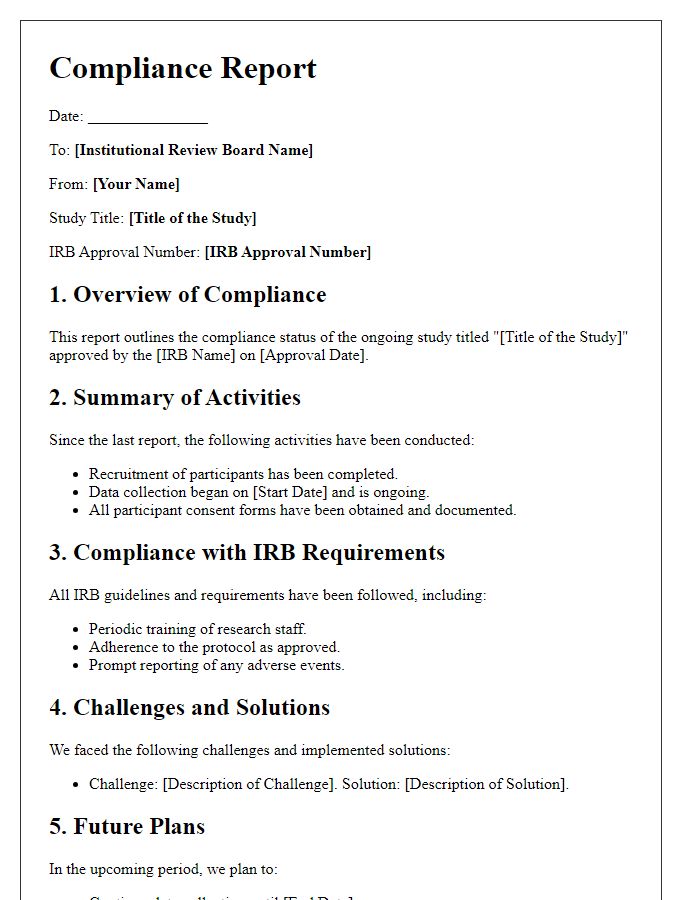

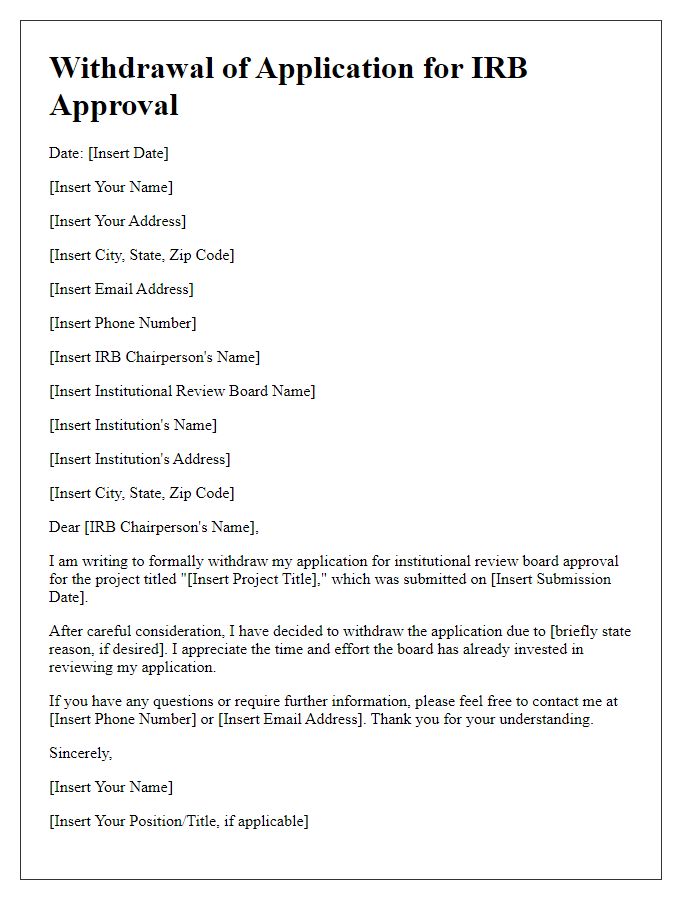


Comments